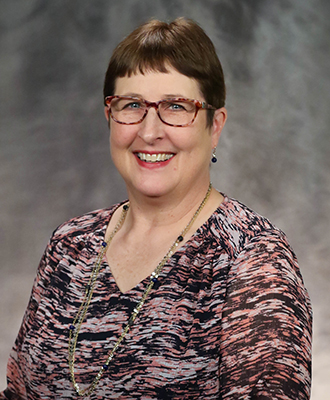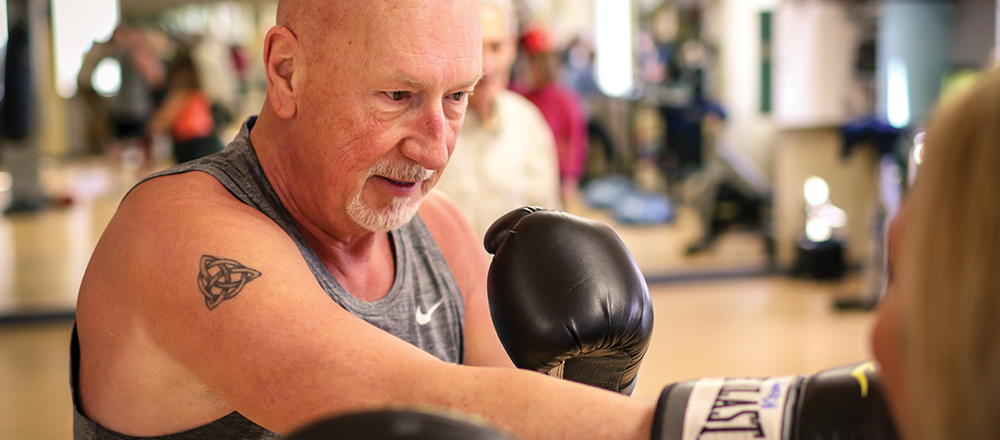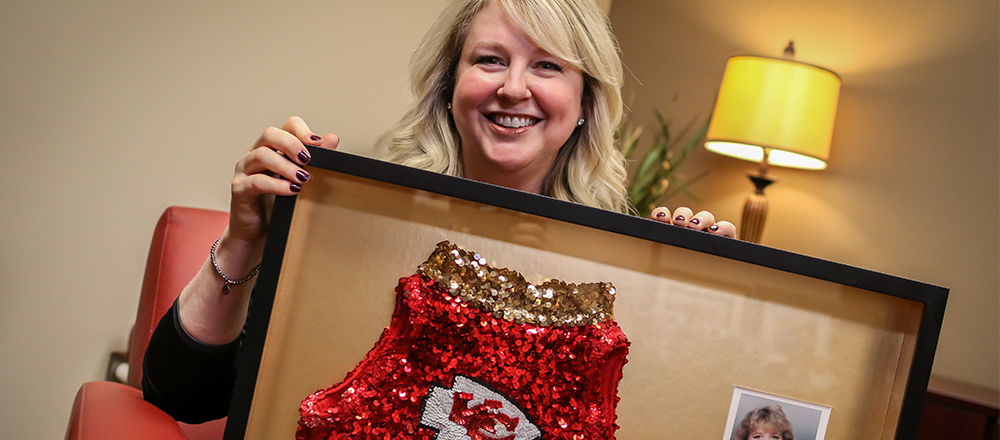How Blood Donation Saved the Life of a Northland Mom
February 17, 2021By: Kim Shopper
Categories: In the Community, Maternity, Patient Stories
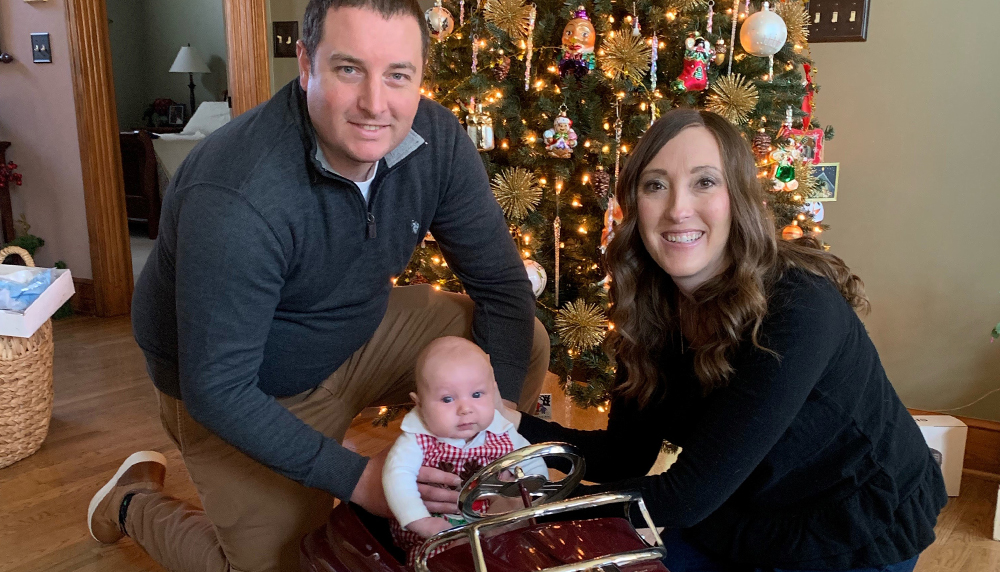
It happened within hours. At 38 weeks pregnant, Northland teacher Katherine Bredemeier was rushed to North Kansas City Hospital and admitted for acute pain and weakness. When Katherine’s symptoms worsened and the baby’s vitals dropped, treating physician Peter Engelman, DO, Meritas Health Obstetrics & Gynecology, identified the source of the problem. Katherine’s liver had erupted due to late-onset hemolysis, elevated liver enzymes, low platelet count syndrome, and she was hemorrhaging and in need of a blood transfusion.
Understanding HELLP Syndrome
HELLP syndrome is an extremely rare disorder that can develop when a woman is 28-36 weeks pregnant. Although the disorder affects just 1% of all pregnancies, it can become dangerous, sometimes fatal, if it goes undetected.
“Most patients with HELLP present with upper abdominal pain. However, some present with nausea, vomiting and malaise, which can be mistaken as a typical viral disease,” Dr. Engelman said. “It’s also not unusual to see high blood pressure and protein in the urine of pregnant women, which can make it difficult to distinguish HELLP syndrome from preeclampsia.”
In its most severe form, HELLP syndrome can cause the liver to rupture and result in massive internal bleeding. When this happens, stabilizing the mother and safely delivering the baby becomes the main treatment focus.
The Power of Blood Donation
Be a Hero
“You don’t have to be a doctor or nurse to save a life,” Dr. Engelman said. “Anyone can be a hero by donating blood.”
Because Katherine’s condition went undetected for so long, her liver ruptured shortly after she was admitted to the hospital. With no time to waste, she required a massive blood transfusion and an emergency cesarean section. In total, Katherine’s blood transfusion consisted of 10 units of cryoprecipitate, 7 units of red cells, 4 units of platelets and 3 units of plasma. Once Katherine was stabilized, Dr. Engelman performed an emergency c-section to save Katherine’s baby, William Patrick. William Patrick, born on September 30, spent just a few days in the NICU before returning home with his father, Brett Bredemeier, while Katherine recovered in the hospital.
The Gift of Life
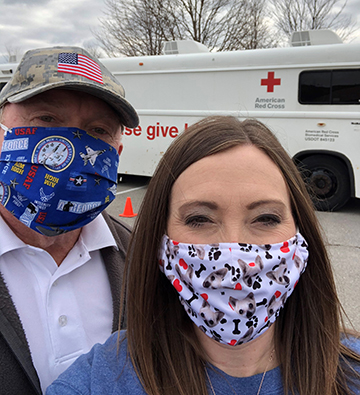 Katherine donating blood with her Dad.
Katherine donating blood with her Dad.
Katherine, Brett and 3-month-old William Patrick celebrated their first holiday as a family thanks to the lifesaving blood transfusion Katherine received. Katherine’s recovery took time, but she is filled with gratitude when she thinks about the strangers who donated the blood that saved her life.
“Thanks to them, I’m here today with William,” Katherine said. “This experience goes to show how important blood donation is.”
Since Katherine’s recovery, her family and colleagues at an elementary school in Liberty have rallied to donate blood in her honor. Katherine hopes to receive medical clearance to donate blood by William’s first birthday.
Make a Difference Through Blood Donation
During the pandemic, it’s important to remember that countless traumas, diseases and disorders still rely on blood transfusions. Despite the continued need for blood, the pandemic has decreased blood donation and resulted in a shortage of blood products.
“You don’t have to be a doctor or nurse to save a life,” Dr. Engelman said. “Anyone can be a hero by donating blood.”
